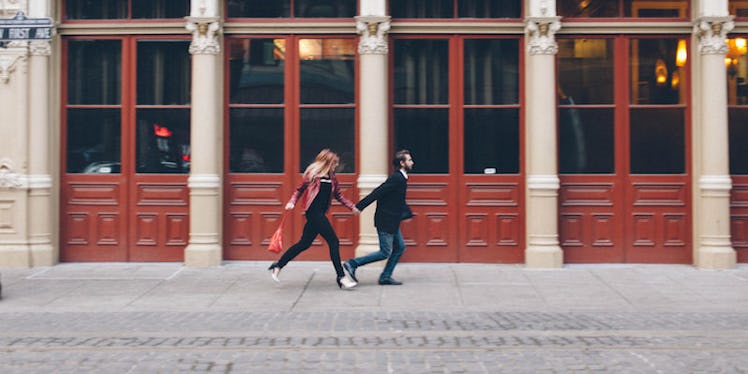
It's Easy To Be Mean Behind A Screen: How Social Media Has De-Sensitized This Generation
British Vogue columnist Suzy Menkes called it the “ugly face of fashion criticism” — that is, a mostly Internet-based community’s predilection towards tearing something down, without offering much else in the way of constructive advice or sparking a meaningful conversation.
While Menkes’ “bitch brigade” might have been directed at her fellow fashion snobs, the tendency to be all doom and gloom on the web is something that spans across all forms of social media, and various subjects.
Largely shrouded in a cloud of anonymity or feelings of removed safety from a couple of continents away, more and more people are connecting through social media, but the results are a far cry from uplifting and intelligent shares.
The medium that helped propel the Arab Spring and spreads news about corrupt leaders and little-known moments of joy around the world has a much darker and less useful side, one that typically lurks in the “comments” box.
All it takes is one scroll through Kim Kardashian’s Instagram photos to notice that it’s not enough to just hit the “like” button — people feel the need to leave nasty remarks far more often then they feel inclined to say something nice.
Just ask some of the writers here at Elite Daily — it’s like you haven’t made it until you’ve been called “an insufferable c*nt” in the comment section of at least two of your posts.
I’m all for using social media to put more information out there, to share photos, experiences, etc. But when a person trolls a site and simply goes on a tirade, without any helpful suggestions or words of encouragement, it’s not engagement; it’s just plain mean.
Instead of using social media to provide a back-and-forth dialogue about a new think piece, we’re using it to skew celebrities for being too plastic, to call out bloggers for being too imperfect, and more. You simply can't please everybody, but since when did the everybody become so hostile all the time?
And the vitriol isn’t just a lot of times too harsh, it can be racially hateful and homophobic.
We use usernames and the fact that we don’t have to see a person’s particular reaction to promote the idea that we have free rein over whether or not to ruin someone’s day.
There are certain people who might seem like they’ve invited scrutiny with high-profile careers or lives, and there are those who simply put themselves out there in the world wide web by posting their political views (or what have you) to Facebook.
But regardless of whether their clearly-Photoshopped skinny arm poses annoy the sh*t out of us, we shouldn’t feel like that sanctions a hurtful message that does nothing other than deride someone else.
The artificial screens of our computer, phones and iPads have seemingly desensitized us to how our words might actually hurt others.
Even on our own Facebooks, we sometimes get callous towards our friends and the action of other posters we see. All it takes is for one person to make a grammatical error or endorse an unpopular opinion before mere acquaintances and sometimes perfect strangers jump on the thread to join in an on attack.
I hate the “your/you’re” mistake just as much as the next person (actually, more), but there’s simply no reason to follow up such a typo with the insensitive or attempting-to-be snarky comment that calls out that person’s stupidity.
Sure, you might think these things about the people you meet on the Internet, just as you might be harboring a secret and deep-seated annoyance with your roommate’s penchant for playing trashy television shows.
But just as you’d never call her out for living by reality TV in an unprovoked and overly-harsh screaming match, we shouldn’t resort to a malicious message or virtual diatribe everytime someone posts something we have a contrarian opinion to.
Constructive comments help, but overwhelming negativity and a lack of kindness don’t do anything of substance at all. In fact, a lot of these hateful remarks have negative repercussions that are felt further than just through momentary embarrassment.
Minnie Driver reportedly quit Twitter after mean comments flooded her feed when a photo of her in a bikini was published. And a few (thousand) people leaving sharing sites after seeing all the negativity that occurs there is only the start — in more extreme cases of cyber bullying, young people have resorted to taking their own lives to stop the torment they endured on their profile pages.
This fact alone should give you serious pause.
This is perhaps the elephant in the (chat) room that we occasionally lose sight of: You never know how a person might respond to brash and unrelenting unkindness.
Kids have killed themselves over what others might classify as “mere taunts.” Losing a life is never worth the selfish satisfaction you might get from putting your hate out there for others to see.
Any episode of "Pretty Little Liars" proves it: Sometimes we become our worst selves when we're relying on texting, tweeting, you name it, to respond.
Social media sites are an incredible gift — how else would we get to have a live chat with our favorite writer at The New York Times, or interact with someone overseas who just happens to have similar interests and hits the RT?
Don’t lose sight of what social media sites are here for, and for f*ck’s sake, don’t just use it to be anonymously mean.
Photo via Tumblr